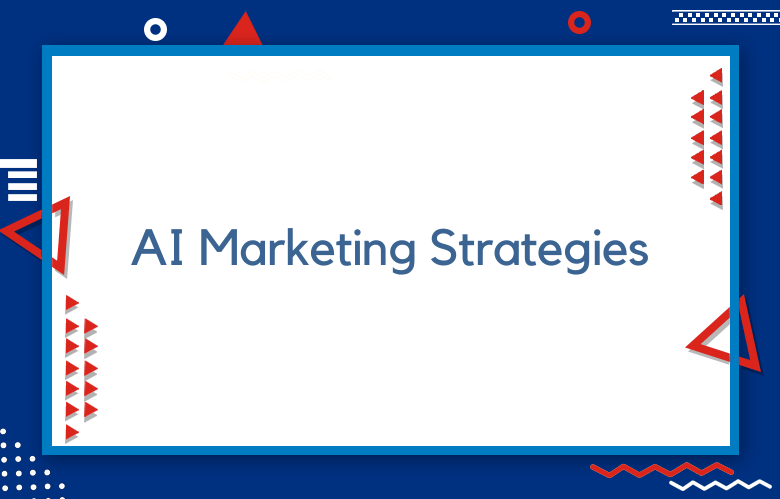The Impact of Regulations on AI Marketing Strategies

As companies continue to adopt artificial intelligence (AI) in their marketing strategies, the question of how regulations may impact the efficacy and ethics of these practices has become increasingly relevant.
Data privacy and usage laws are evolving worldwide, from GDPR in Europe to CCPA in California, and businesses must carefully navigate these regulations to avoid legal and reputational consequences.
We’ll explore the impact of regulations on AI marketing strategies and offer insights on staying on the right side of the law while leveraging innovative technologies.
Building Trust in AI Marketing: Strategies to Address Regulatory Concerns
With the increasing use of artificial intelligence (AI) in marketing, there is a pressing need to build trust in these technologies among consumers.
This is particularly crucial as regulatory concerns surrounding data protection and privacy have become more pronounced in recent years. To effectively address these regulatory concerns, marketers must employ strategies that establish transparency and accountability when using AI.
One vital strategy in building trust in AI marketing is ensuring consumers understand how their data is processed and used.
This can be achieved by providing precise and concise information about the AI algorithms being used and the purpose for which data is being collected. Marketers must make it easy for consumers to opt out of data collection if they so choose.
Future-Proofing: Adapting AI Marketing Strategies to Evolving Regulations
As AI marketing becomes more prevalent, businesses must be aware of how to adapt their strategies to comply with evolving regulations.
In recent years, governments worldwide have implemented stricter data protection laws like the European Union’s General Data Protection Regulation (GDPR) and California’s CCPA to protect consumers’ privacy rights. Failure to comply with these regulations can result in hefty fines and damage to a company’s reputation.
AI marketing strategies must be designed with these regulations in mind to avoid legal repercussions. This requires businesses to carefully consider how they collect and use consumer data in their marketing efforts.
For example, GDPR requires businesses to obtain explicit opt-in consent from individuals before collecting or using their data for marketing purposes. Companies must allow consumers to access, update, and delete their data upon request.
Regulatory Insights: Gaining an Edge in AI Marketing Strategies
In recent years, using Artificial Intelligence (AI) in marketing strategies has become increasingly common among businesses.
AI provides an efficient and effective means of analyzing customer data, identifying consumer patterns, and predicting future behaviors to help companies make informed marketing decisions. However, with this technology comes the need for regulatory oversight to ensure that AI is utilized ethically and legally.
To gain an edge in AI marketing strategies, businesses need to remain aware of existing and emerging regulations governing the use of AI in marketing. These guidelines can help companies build trust with their consumers and avoid potential legal issues or reputational damage.
Mastering the Regulator’s Game: Tactics for Successful AI Marketing Strategies
As the use of artificial intelligence (AI) in marketing continues to grow exponentially, businesses need to master the regulator’s game to avoid any legal repercussions.
The key to successful AI marketing strategies is ensuring that they are ethical and comply with regulations from bodies such as the Federal Trade Commission and the General Data Protection Regulation.
One tactic for achieving success in AI marketing is transparency. Brands need to be open and honest about the technology they are using, the data they are collecting, and how that data is being used.
This builds trust with consumers and ensures that businesses meet their legal and ethical obligations.
Compliance with an Edge: How Regulations Shape Cutting-Edge AI Marketing Strategies
As technology continues to evolve rapidly, companies must find ways to integrate cutting-edge AI marketing strategies into their business models. However, this is easier said than done, given the increasing number of AI industry regulations.
These regulations are put in place to ensure that AI technologies operate safely and securely and are not used to discriminate against specific groups or individuals.
Companies must know the regulatory landscape and incorporate compliance into their AI marketing strategies.
They must balance the benefits of using AI with maintaining ethical and legal standards. This means using algorithms that do not discriminate, being transparent in how data is collected and used, and maintaining the security of customer data.
Breaking Boundaries: Pushing the Limits of AI Marketing Strategies while Compliant with Regulations
In marketing, companies are constantly seeking new ways to reach and engage their target audience effectively. With artificial intelligence (AI) advancements, marketing strategies have been revolutionized.
Marketing strategies that use AI can analyze vast amounts of data to create personalized campaigns tailored to individual customers. This has led to more targeted marketing, higher conversion rates, and increased customer retention.
However, with great power comes great responsibility. The use of AI in marketing can potentially raise serious ethical concerns, especially regarding data privacy and security.
Laws and regulations are in place to prevent companies from misusing data and violating consumer rights. Therefore, ensuring that any AI marketing strategies being implemented comply with these regulations is essential.
Understanding the Role of Regulations in AI Marketing
AI in marketing can provide enormous benefits, including personalized targeting, automated optimization, and enhanced customer experience. However, regulations must be considered when developing and applying these practices.
The key issues that data privacy regulations address in AI marketing include data collection, storage, processing, and usage. It is critical to comply with regulations to avoid steep fines, legal action, and negative publicity.
Navigating the Major Regulations in AI Marketing
The General Data Protection Regulation (GDPR) in Europe and the California Consumer Privacy Act (CCPA) in the US are two of the most prominent regulations in AI marketing.
GDPR applies to businesses that process the personal data of EU citizens, while CCPA applies to companies that operate in California.
Companies must comply with these regulations’ requirements regarding data subject rights, consent mechanisms, data processing transparency, and security measures. Countries like Canada, Brazil, and India have also introduced similar laws.
Strategies for Complying with Regulations in AI Marketing
Compliance with regulations requires a comprehensive approach and a willingness to adapt to new requirements constantly.
Businesses can take several steps to ensure compliance, including building transparency into data processing practices, providing opt-in and opt-out mechanisms, conducting audits, and partnering with legal and regulatory experts to stay on top of legal developments.
Navigating the Ethical Considerations of AI Marketing
In addition to regulatory compliance, businesses must also navigate ethical concerns about using AI in marketing. These include issues of transparency, fairness, and accountability.
Companies should be transparent about their use of AI in marketing and how they use data and should strive to avoid discriminating against specific demographics or perpetuating bias. Businesses must be accountable by building compliance and accountability into their data processing practices.
The Future of AI Marketing and Regulation
The use of AI in marketing is expected to increase, and with that, the regulatory landscape will continue to evolve.
Future developments may include more stringent privacy requirements, increased scrutiny over AI-powered decision-making, and more legal actions against non-compliant companies. However, using AI in marketing also presents significant opportunities for innovation and customer value creation.
Conclusion:
AI in marketing is a powerful tool that can provide significant benefits to businesses and customers alike. However, it is essential to understand that regulations play a critical role in shaping this technology’s ethical and practical use.
Companies must comply with data privacy and usage regulations while navigating the ethical implications of AI-powered marketing. To stay ahead in this rapidly evolving field, it is essential to build a comprehensive approach to regulatory compliance, understand the growing ethical concerns, and keep an eye on future developments.
Call: +91 9848321284
Email: [email protected]



